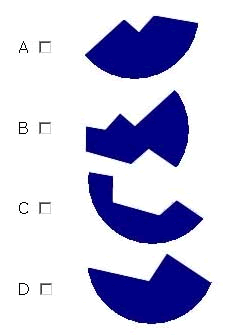No, that’s not a mistake, it’s not one of those moments when you screw up while doing a spell check. Ever have that happen with an email, you approve the correction that changes the word to a non-sequitur and off it goes!!
(Lord knows, I’ve gone back to a blog or two I’ve written and wanted to insert a combination spelling, syntax, style, and grammar check into my brain…)
Nicholas Kristoff wrote an absolutely fascinating piece in today’s Times about I.Q.
The piece is inspired by a new book by Richard Nisbitt: Intelligence and How to Get It: Why Schools and Cultures Count.
“Professor Nisbett provides suggestions for transforming your own
urchins into geniuses — praise effort more than achievement, teach
delayed gratification, limit reprimands and use praise to stimulate
curiosity — but focuses on how to raise America’s collective I.Q.”
There’s a lot to consider here, perhaps most of all a book that looks at the impact of poverty on a child’s performance in school and in life, and rather than address this reality through the single lens of testing, testing, testing, and higher standards, looks at a wide range of issues that are more appropriate to the role that schools and parents have traditionally played in the complex world of educating and developing people. It’s less about the technical reforms beings discussed today and more about the art of teaching and learning and deeply considering what our children need. And, by the way, it’s about the achievement gap too.
I would like to, for one moment, pair this piece up with a piece that I have always considered a primer on standardized testing. It come from my friend Robert Tobias, NYU Professor and former head of Research in the New York City Public Schools. The piece is Tobias’s testimony to the New York City Council in 2005. It is, a must read, at the top of the list if you’re interested in knowing more about what standardized tests do, don’t, how they’re gamed, and more.
Here are a few excerpts:
“Standardized tests are tools designed to measure a
construct. That construct may be mathematics knowledge and skill,
reading achievement, or mastery of state learning standards. In our
zeal to raise test scores we have forgotten that the test is a measure
of learning and reified the test score to the status of learning
itself. The test score has become the coin of the realm and raising
scores through any means has become the Holy Grail.”“…an unprecedented increase in test preparation has been widely
reported, including the adoption of a new program of interim testing
by the NYCDOE. Much of this test preparation is not designed to
increase student learning but rather to try to beat or “game” the
test. It may even serve to narrow learning by focusing instruction on
the sample of content and formats used on the test rather than the
broad and deep knowledge required by the standards. Thus, some of the
improvement in scores may be because students have become better test
takers rather than better learners.”




